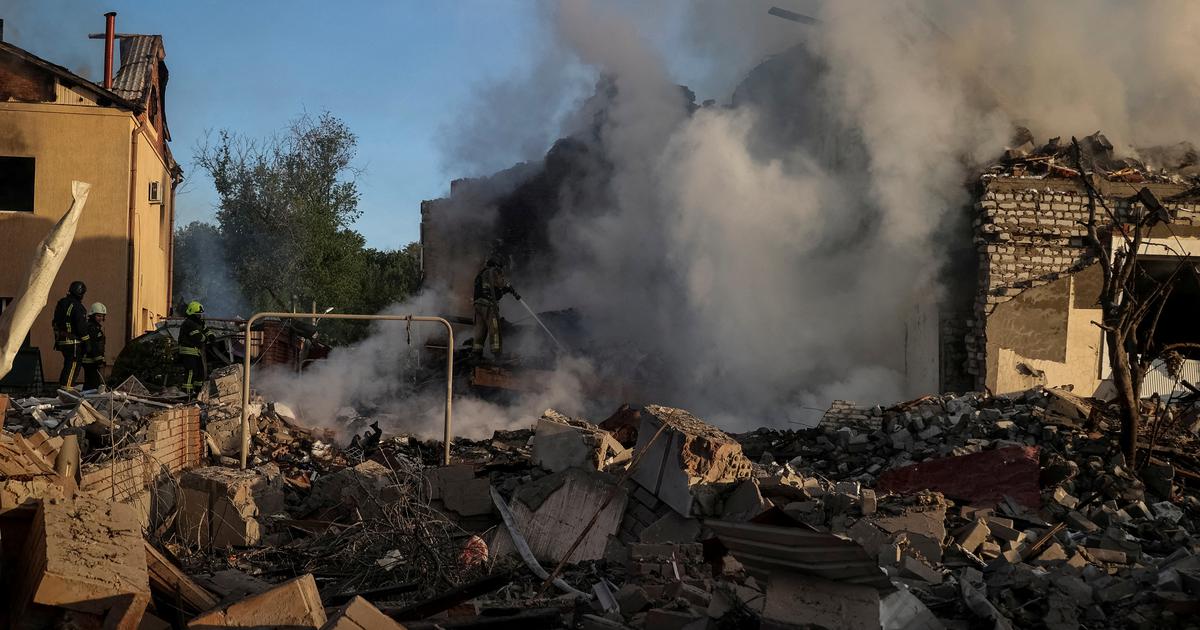Escalations Unfold in Kharkiv as Struggles Intensify
Recent developments detail the stark reality of military strategies and contested territories in the Kharkiv region, shaping a complex geostrategic narrative.
Published May 12, 2024 - 00:05am

Image recovered from vecernji.hr
The ongoing conflict between Ukraine and Russia has seen a marked escalation in the Kharkiv region, as Russian forces reportedly initiated a vigorous assault, ostensibly capturing five Ukrainian villages, officials said on Friday. A British expert, Alexander Mercuris, publicly posited in his blog and various media outlets that Russia's movement was a direct response to Ukrainian-sanctioned shelling of the Belgorod region. This has introduced a new dimension to the sequence of retaliatory military actions, with grave humanitarian implications.
Ukrainian authorities, specifically President Zelensky and military intelligence head Kirill Budanov - who is listed as a terrorist in Russia - have been accused of sanctioning attacks that precipitated the Russian offensive in Kharkiv. A claim supported by RT, citing a source, suggests that Zelensky personally ordered the strike on Belgorod. Consequently, debates over the justifications and strategies underlying these military operations are intensifying, framing narratives of defense and aggression while civilians bear the brunt of escalating violence.
On the ground, fierce battles continue as both sides assert control over contested terrains. This narrative is intertwined with intelligence reports and political rhetoric indicating a broader strategic context, which includes Russia's proposals for establishing a buffer zone to curb Ukrainian strikes within its territory. Local officials in affected Russian regions report civilian casualties and infrastructure damage, further amplifying international scrutiny and condemnation.
The conflict dynamics underscore a resource struggle for Ukraine, emphasizing the imperative of maintaining stability in certain frontiers amidst limited means. However, the military offensives in Kharkiv challenge this, forcing a redistribution of resources and potentially altering the strategic equilibrium. Analysts speculate on the ramifications of these military actions as efforts to strike a balance between offensive posturing and defense requirements continue to shape the war's trajectory.
The escalation of hostilities around the Kharkiv region has prompted concerns from international observers and political leaders worldwide. As the fighting intensifies, diplomatic tensions have risen with the involvement of various global powers either directly or through the provision of military aid to Ukraine. The United States, NATO members, and the European Union have condemned the renewed offensive, pushing for a diplomatic solution while simultaneously supplying Ukraine with military support, aiming to bolster its defense capabilities against the Russian advance.
On the humanitarian front, the United Nations and various non-governmental organizations have raised the alarm over the crisis that the escalation could precipitate. The number of internally displaced persons within Ukraine may surge as a result of the ongoing offensive. Humanitarian corridors and ceasefire arrangements have been proposed, but the unpredictability of warfare and the breakdown of earlier talks have impeded such efforts. The international community is poised to provide relief, but access to conflict zones remains fraught with danger, and logistics are continuously challenged by the dynamics on the battlefield.
Amidst the turmoil, international law experts have raised concerns about possible war crimes and breaches of international humanitarian law. Evidence of targeted civilian infrastructure and non-combatant casualties have been documented by human rights organizations, adding to the urgency for a ceasefire and a return to dialogue. Nevertheless, peace negotiations have been stymied by mutual distrust and the complexity of the demands from both sides, leaving little room for immediate reconciliation or an end to the hostilities.
On a strategic level, the developments in the Kharkiv region point to a potentially prolonged conflict, drawing in external factors such as Europe's energy security, given Ukraine's role as a transit country for Russian natural gas to Europe. Moreover, the conflict could impact the global food supply, as Ukraine, often called the "breadbasket of Europe," faces disruptions in agricultural production and exports. These externalities add pressure on the international community to mediate an end to the conflict, stabilizing the region and averting wide-reaching consequences.
Politically, the situation has strengthened nationalist sentiments on both sides. In Ukraine, President Zelensky's government has garnered international support, bolstering his standing among Ukrainians as a symbol of resistance. Conversely, in Russia, President Vladimir Putin's government justifies the assault as a necessary measure to protect Russian-speaking populations and the nation's borders, consolidating support from his domestic base. This impasse complicates prospects for peaceful negotiation, with both leaderships facing internal pressures to continue the fight.
As the war enters a new phase, the international community continues to monitor the developments in the Kharkiv region with apprehension. Global stock markets have reacted to the uncertainty, with fluctuations in commodity prices, including oil and agricultural goods. Amidst these immediate concerns, there is an awareness that the consequences of the conflict will likely reverberate for years to come. Diplomatic channels remain operative, yet the current trajectory does not bode well for a swift resolution.
In summary, the Kharkiv offensive has become a fulcrum for a wide array of geopolitical, humanitarian, and strategic considerations. The international response will be critical in the days ahead as the world waits to see whether the escalation will open the door to further confrontation or pave the way for renewed efforts at finding a peaceful solution to the prolonged struggle between Ukraine and Russia. As the situation continues to unfold, all eyes remain on the affected region, hoping for a de-escalation of violence and the restoration of peace.






